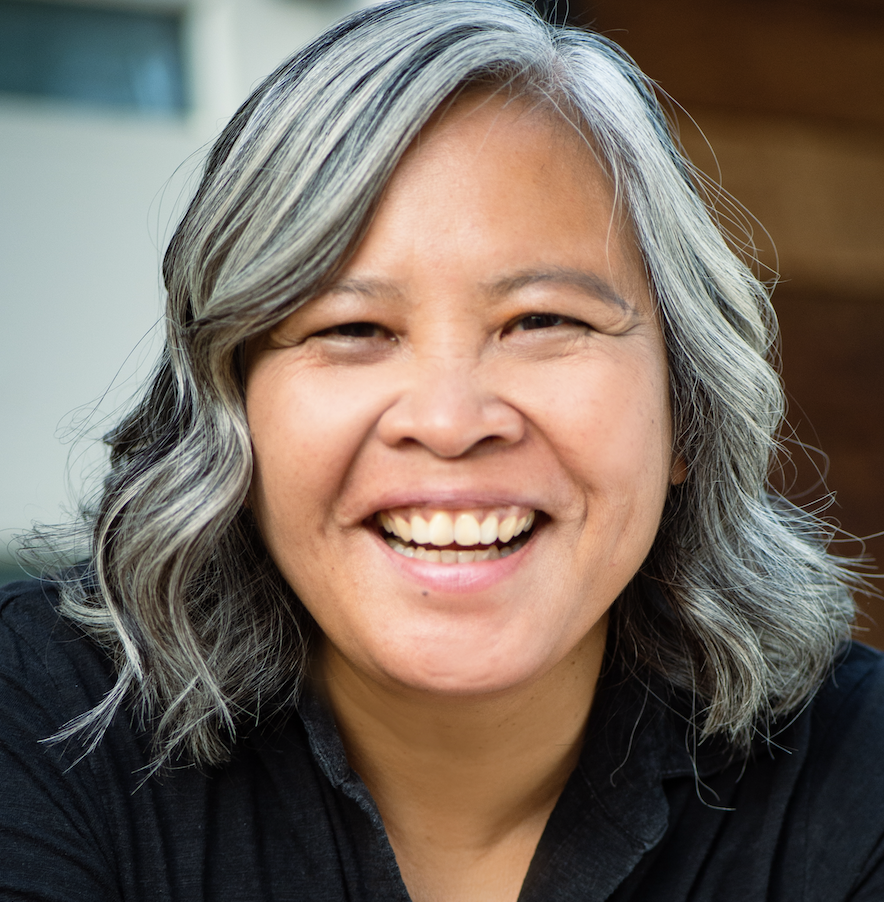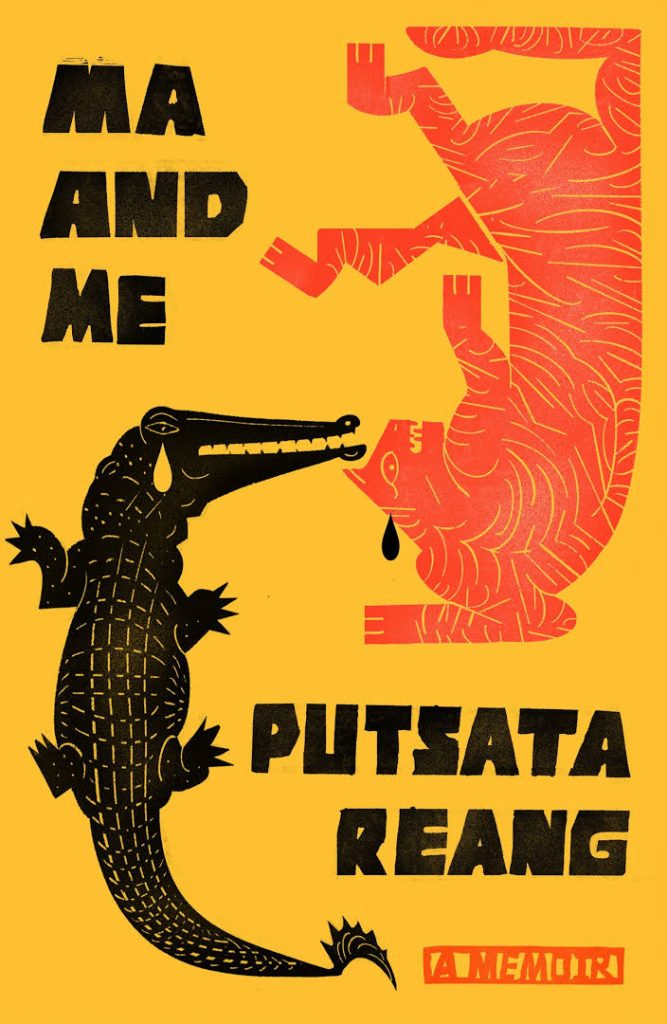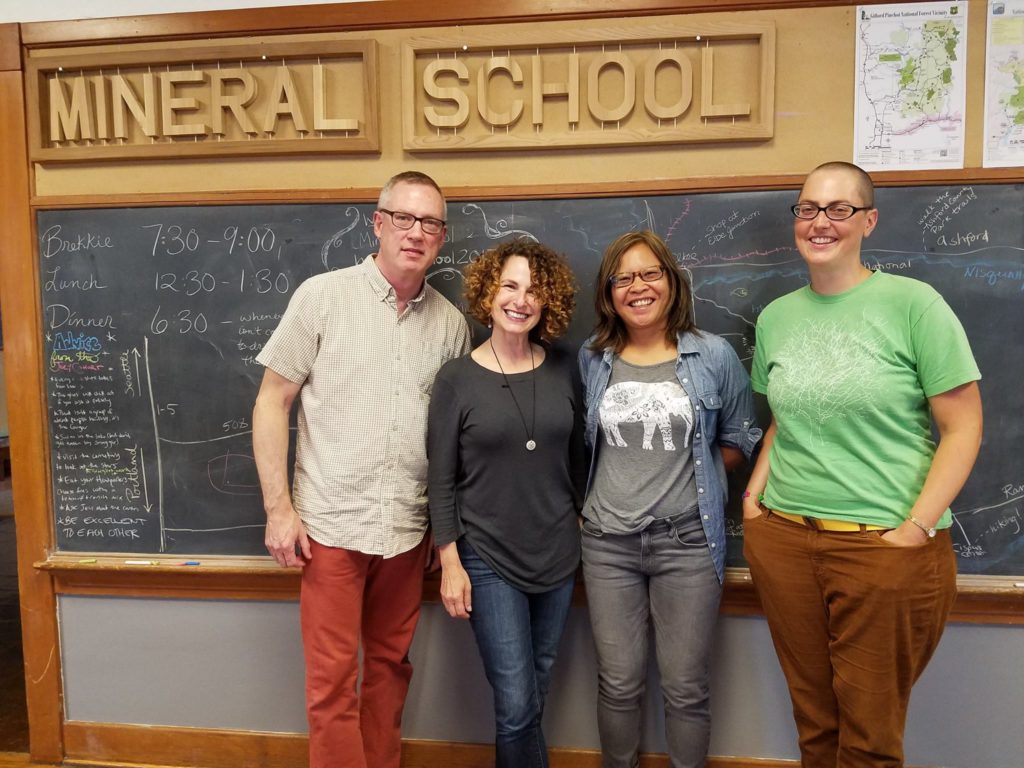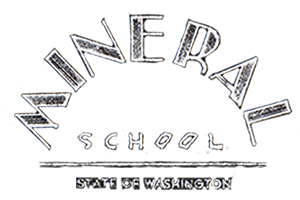Blog
Meet a Resident: TLR interviews Putsata Reang!
Leanne Dunic (2017) is Fiction Editor at Tahoma Literary Review, and interviewed journalist and creative nonfiction writer Putsata Reang (2017), pictured below, about her memoir Ma and Me (FSG, May 2022) for the journal. We’re sharing their conversation (with permission) here for your enjoyment.
I first met Putsata Reang at Mineral School Residency. There, she read a piece originally published in the New York Times’ Modern Love, and it made me cry. It still does. Putsata’s forthcoming book, Ma and Me, (FSG May 2022), is an extension of that essay––a layered portrait of what it means to be a QTBIPOC refugee in America, and what it takes to break free from the narratives that oppress us. — Leanne Dunic, March 2022

TLR: You’ve been a writer for awhile, often as a journalist. At what point did you realize that your story needed to become a book?
Part of me knew, on my first trip to Cambodia when I was 16 years old, that I wanted to tell my family’s story. That trip was such a moment of awakening for me. I grew up in Corvallis, Ore., thinking I was American. And I am. But I am also Cambodian. And that is something that I didn’t, and maybe couldn’t, fully embrace until I was physically in the country, where I saw people who looked like me. Throughout my journalism career, I’ve always written in different ways about my story by gravitating to stories that I covered for various newspapers that reflected something back in me. The kinds of stories I’m talking about involved residents of a mobile home park in a Silicon Valley suburb being displaced by a multi-million dollar development; or the story of a transgendered youth in the Bay Area who was bludgeoned to death by a group of teens she thought were her friends; or the story of a women’s quilting group in Seattle that gave Cambodian refugees a safe space to talk about their trauma. So you can see some of the emerging themes I grappled with as a journalist: displacement, discrimination, trauma. These are some of the issues I explore in Ma and Me.
But I will say, it’s one thing to realize you need to tell your story, and another altogether to have the motivation or inspiration or courage to do it. Nearly 15 years ago, I met the author Loung Ung, who wrote the beautiful memoir, First They Killed My Father about surviving the genocide in our country. So many parts of Loung’s book haunt me to this day. I met Loung on a dust-blown street in Cambodia’s capital, Phnom Penh, and we instantly became friends. When she heard my story, she insisted I find a way to tell it. Well, Loung has to find something new to nag me about now because I finally finished my book!
TLR: Was there a transition between writing as a journalist and writing as a memoirist?
The bridge between being a journalist and a memoirist was an incredibly long one to cross. As a journalist, I was trained in the rigors of facts and numbers, and writing a balanced story about someone else. In early drafts of my memoir, my editor kept nudging me: “Put, I want you to put on your writer’s hat, not your journalist’s hat,” by which she meant: put yourself in the story, give us musings, opinions, feelings. These are all the things I was terrified of. Write about my feelings? That felt enormously indulgent and I didn’t want to do it. But I had already signed my book contract. So I had to find a way. Slowly, with A LOT of prodding from my editor, I got there. There are certainly clear traces of the journalist in me in this book, but it’s also very much a memoir where I allow myself to look a bit deeper into my interior world to recognize the meaning behind various events and experiences in my life.
TLR: I’m curious about identity, and how one’s relationship/view of themselves may change over time. For example, when I started writing my last book, I used to identify as “half” Chinese, and “half” Croatian, but my editor pushed back on that, which I really appreciated. I now see my heritage in a less stark way. Did writing this book have any impact on how you identify yourself?
Absolutely. There was a time when I considered myself only “American.” That’s when I was younger and even though I knew I was different, being brown-skinned in a majority white community, I didn’t and couldn’t yet claim to be Cambodian because I wasn’t quite sure what that meant. When I returned from my first trip to Cambodia in 1990, I realized I come from two worlds, so I can claim both as mine and I started seeing myself as Cambodian-American. And now, when someone asks me about my heritage or where I’m from (which is an enduringly annoying question), I say, “I’m Cambodian.” Because I have so much pride in my country and culture that developed in the intervening years between my youth and now.

TLR: The book is full of emotional stakes and complexities. Any hopes or anxieties that you’d like to share about having this book out in the world this spring?
I think it’s easy for people to judge characters in a book and one of the things I will say about memoir and memoir writing is that: the characters are real people. Some readers may feel upset or angry at my parents in different parts of this book, but I really want to challenge readers to extend some grace. My mom is not a bad person for not accepting the fact that I am gay. My father is not a bad person for not knowing a better way to get out his frustrations. I think in western storytelling, we are conditioned to believe that there are bad guys and good guys. But the reality is very different. There are very complex characters, too, with complex histories and personal arcs, characters who make mistakes and try their hardest and sometimes still get it wrong. That’s just the human condition.
TLR: What do you hope readers will take away from the book?
My greatest hope is that people will walk away from my work with the message that Cambodia is more than just a country of genocide. We are a country of artists, singers, writers, and dancers. We can never cleave ourselves of the fact that a genocide happened in our country, but my intent is to do my part to help change the narrative about us. That we are so much more multi-dimensional than what the world perceives us to be: victims. Yes, we are victims of a war, but we are so many other beautiful things, too. It’s time we shift the focus to all the wonderful things about Cambodia and put less emphasis on the darkness. I say that, knowing fully well that I, too, delved into that darkness in my book. But I hope readers can see the pure joy and hope that ultimately prevails in this narrative.
TLR: You and I first met at Mineral School.* What was that residency like for you? Any advice for folks wanting to apply for a residency there?
I absolutely adored my cohort at Mineral School! We are all friends to this day. The fact that Mineral School is in a tiny town in the shadow of Mt. Rainier with really nothing to do meant that I had to confront my work and my words. I had to just write. This is not the kind of place you can go out and get a cocktail or a nice dinner, which is why we are fed delicious meals at the residency. I’d say, if you’re the imbibing type, be sure to bring your own juice. And for BIPOC folks, know that you’ll be living/working in a very conservative part of Washington State. No one bothered me there. But you do definitely stand out if you’re not white.

TLR: You’ve also been a resident at Hedgebrook and Kimmel Harding Nelson. Are residencies an important part of your writing process?
Hedgebrook was the very first residency I applied for and I wasn’t fully aware of just how critical being at residency is for a writer like me who needs complete silence and focus in order to think and work. I really could not have finished my book had it not been for these residencies. I worked on different parts of the book at the different residencies and those weeks in remote parts of the country were by far my most productive in the life of my book.
TLR: Are you still doing journalistic work? What is a piece you wrote that still lingers with you today?
I put a pause on my journalism career when I moved to Seattle eight years ago to be with my partner, who is now my wife. I haven’t written what I would consider “journalism” for many years now. I have written personal essays in recent months and years, but I don’t consider that journalism, not the kind I used to do when I worked for newspapers. Of the hundreds of stories I’ve written in my career, I’d say the ones that linger are stories I wrote about landless farmers in Cambodia. The heartache of interviewing villagers whose lands were being stolen or taken by politicians or wealthy business people still lives in me. I wrote these stories when I was a fellow of the Alicia Patterson Fellowship in 2005, and because of the political situation in Cambodia, we decided not to publish these stories on the Alicia Patterson website, as is the tradition. The stakes are still very high for me as a journalist to write anything that would be construed as being critical by the ruling party in Cambodia, headed by the authoritarian Hun Sen (who was a former Khmer Rouge leader). My greatest fear is to be PNGed (persona non grata) from my own homeland. It’s a very fine line I walk as a journalist when I’m in Cambodia.
TLR: What’s next?
Right now, I’m getting ready for the book launch and trying to enjoy some of the early buzz around it. I’m playing with an idea for another project but to be honest, a bigger part of me just wants to get back to journalism.
TLR: Are there any writers whose work you are finding particularly resonant right now?

I recently read Albert Samaha’s memoir, Concepcion, where he so expertly weaves in how colonialism impacted the evolution of the Philippines from a country that was eyed by colonizing interests and ultimately settled for the lesser of evils by striking a protectorate type deal with America, and eventually, how some of the author’s family members ended up in the U.S. mainland. He writes so astutely about how his family didn’t go to America because they were fleeing war; they merely hoped to improve their lives. But we’re left to question and wonder throughout the narrative whether their lives were better in the Philippines or in America? When you take this one very basic idea that Albert’s Filipino family members migrated to America for a chance at a better future, isn’t this exactly the premise of America, isn’t this the very ideal that our country was founded on? Albert’s books echoes so deeply within me because of all the anti-immigrant rhetoric that has only heightened in the past four years, particularly because we had a racist president for four years. Let’s get this straight and it’s worth repeating over and over again: white people were not the first to settle this land. This land was stolen from Native American peoples by white people. So this idea—espoused by our former president and his fellow racists in office—that somehow, people who are nonwhite don’t belong here, is unbelievably ridiculous.
TLR: Do you have any advice for QTBIPOC folks wanting to get their stories out there?
Find a way to set aside the voice that says, “Your writing is not good enough,” or “Your story is not interesting enough,” or “My mom’s going to kill me if I write my truth” and just write. Your writing is good enough. Your story is interesting enough. No, your mother will not kill you. She will be very mad, perhaps, but she will not kill you! Write every single day. And when you have something to show—an essay or a chapter of a book, or even an outline of a book—find a mentor who will read your work and help guide you along. You need someone, or many someones, to be there on your journey to cheer you on. In other words, start now to build your community. We need each other.
*Tahoma Literary Review is sponsoring a fellowship for a two-week residency at the Mineral School for a BIPOC writer. Application deadline is April 15, 2022. You can find more information here.




